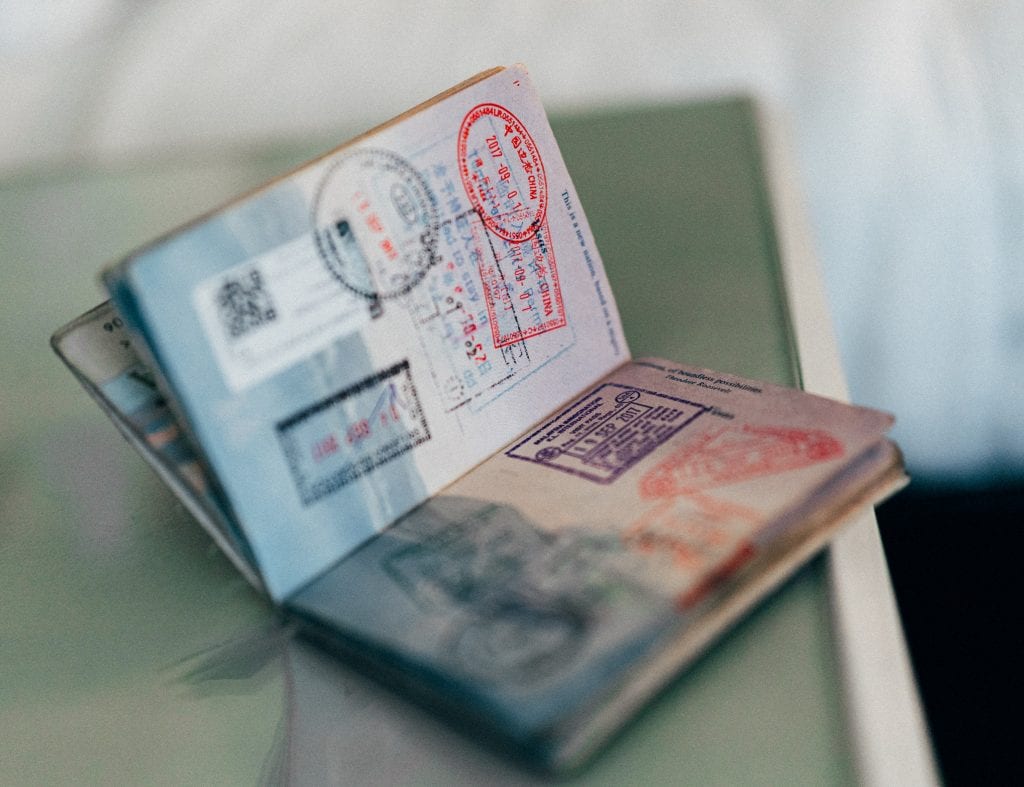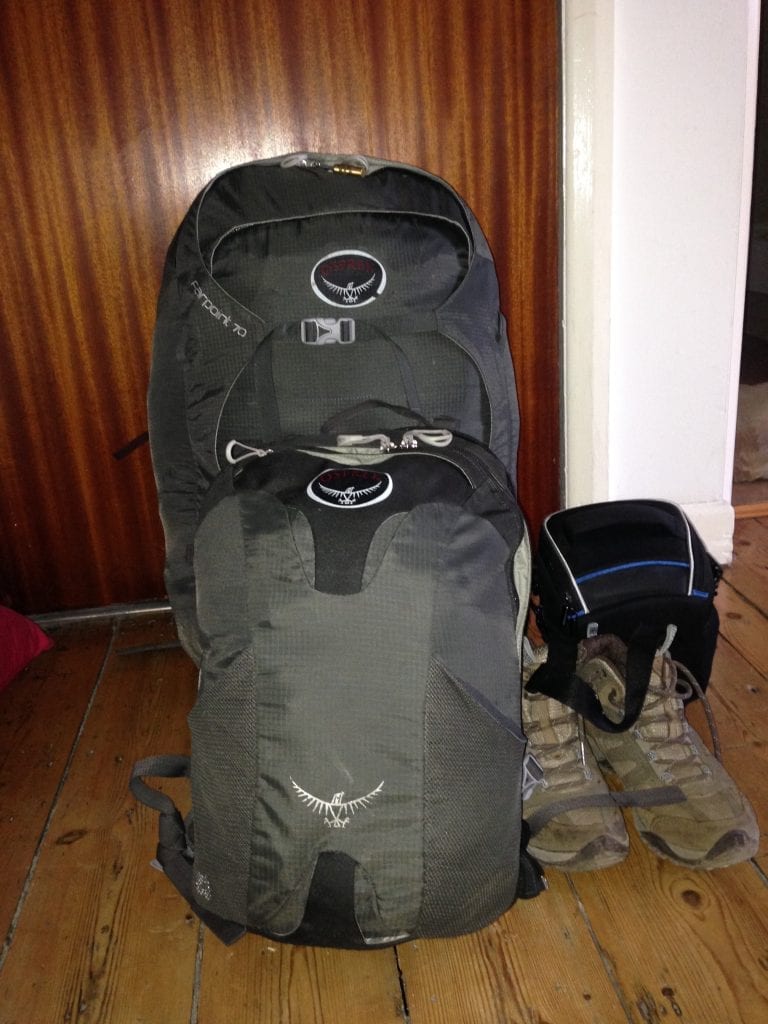Dos and don’ts for seasoned and first-time travellers
If you’re an experienced traveller, you’ve learned how to prepare for your journey and what the dos and don’ts are that help make your trip easier. As a first-time traveller, you may be looking for some suggestions and help. If you haven’t travelled solo before, or if it’s your first time to a different type of destination or style of travel, the dos and don’ts for travellers below will make your life a lot easier! Some may be obvious, others perhaps less so. All are based on my own experiences and the wise words of others when I first started out on my solo travel adventures.
Things to DO in advance
In no particular order, here are my top things to do in my list of dos and don’ts for travellers. These will need preparation in advance (e.g. vaccinations), while others can be done the night before (see list below). Use this as a checklist to tick things off as you prepare in the run up to your big adventure.
- Insurance. Never travel without it. It’s just not worth the risk. It may be easy to think you’re saving some money by going without it. But if you get ill or are in an accident it could get very expensive. Even worse, if you are in the USA where medical costs can go through the roof while you’re still in the ambulance, you’ll be thankful to have insurance cover. I use and recommend SafetyWing for its Essential cover (for shorter trips) and its Complete option for digital nomads and long-term travellers.
- Vaccinations. Depending on which region of the world and which country you’ll be travelling to, and even whether you’ll be in cities or rural areas, you may need to get some immunisations in advance. Check with your local healthcare provider about what’s required for where you’re going. Be sure to give yourself plenty of time, as some may need two or three doses spaced months apart. Keep in mind that some countries will only allow entry if you have a valid yellow fever certificate. Make sure to check whether you’re likely to need it.
- Medication and contact lenses. Taking medication? Make sure you have enough supply for the duration of your trip (and some extra to account for potential delays). You will also need to have the written prescription with you. What is standard medication in some countries is illegal in others. If you need it, make sure you can prove it’s legally obtained and necessary to you. The same goes for contact lenses. Have enough to see you through and pack a spare pair of glasses just in case.
- First aid kit. Always useful to have and it need not be big and bulky. For the basics on what to include, see how you can build your own basic first aid kit.
- Copies of important documents. Take a digital photo and make a paper copy of your passport, driver’s licence and yellow fever certificate (if applicable). They will be good to have if you lose the originals or they’re stolen. A copy of your passport will be very useful to help you get an emergency replacement so you can continue to travel or get back home. If you need a visa for a particular country, take a photo of it when it’s added to your passport. Keep digital copies on your phone or in the cloud, and maybe send a copy to friends and family as an extra backup. Remember: keep paper copies separate from the originals so that if you lose one you won’t lose the other.
- Passport validity and empty pages. A lot of countries require you to have at least 6 months left on your passport. They may refuse entry if you don’t. Many visas also take up a full page. Check that you have enough space and time left before your trip in case you need to apply for a new passport.
- Passport photos. Take a set with you. Some countries require a passport-sized photo for a visa. You don’t want to be scrambling around looking for a photo booth after a long journey that only takes local currency that you don’t have and that has a queue a mile long.
- Universal travel adaptor. I guarantee that you will not remember to check the plug requirements in advance. I’ve been travelling for years and I still forget. You won’t need to if you have a universal adaptor, and it’s one less thing to worry about. Pick one that also has USB sockets so you can charge more than one thing at a time.

Things to DO the week before
Some things can be left until a few days before as you pack and sort out what to take. This is where it starts to feel real and get exciting! These items have saved my bacon at least once on trips.
- A change of clothes in your carry-on. Checked bags can get delayed and go missing at any time. A spare set of clothes and underwear in your carry-on will feel fantastic if that happens and you’ve only got the clothes you’ve been wearing for the last 16 hours, through 2 airports and 3 buses.
- Toothbrush and toothpaste. This is good to have on any journey to help keep your mouth feeling fresh. Gum and mints go a long way, but nothing beats brushing your teeth.
- Pen. I have what I call my “visa pen” in my carry-on daypack. Lots of countries require you to fill out an immigration or customs card. Save yourself the scrabbling around for one or the embarrassment of holding up the queue because you can’t fill out your card before it’s your turn at the immigration booth.
- Cash. It’s good to have some local currency on you before you arrive. ATMs may not be working or are out of money (or worse, there aren’t any). I recommend having some US dollars as well. Some countries will only accept payment in US dollars for visas on arrival. It’s also a hard currency you can exchange for local money almost anywhere. (The exception to this is Cuba, where it costs more to exchange US dollars.) For more money tips, take a look at the money matters page.
- Refillable (with/without filter) water bottle. I have yet to find an airport that doesn’t have filtered water once you are past security. Worst case, you go to one of the restaurants and ask them to fill it up for you. Keeping hydrated while on a long flight is important, and it helps keep single-use plastic bottles to a minimum (and saves you money).
DON’TS to keep in mind when travelling
A couple of things to keep in mind that you shouldn’t do. Many may be second nature for those who are used to travelling. Others may be less obvious if you’re a first-time traveller. Here are some things to avoid doing.
- Don’t overpack. It’s easy to think you will need everything you use in your daily life at home. But I promise you, you won’t. And you definitely don’t want to be lugging everything around. It’ll quickly get tedious and exhausting and you’ll be looking for a post office to send things home. And that gets expensive, assuming there’s even a half-decent postal service where you are. For hints and tips of what to pack and for what types of climates, check out my ultimate packing list.
- Don’t overplan. Planning your itinerary down to the minute could mean you miss out on experiences you hadn’t considered, or places you didn’t know about. You could also miss out on a lot of fun! By all means, have a plan in place, but allow some flexibility for things to change. You may want to stay on somewhere for longer, or you may want to move on pretty quickly. You may not like your accommodation and want to change but you can’t if it’s all paid for and non-refundable.
- Don’t joke around with security officials. You may have a wicked sense of humour, but it won’t be funny at a border crossing or going through airport security. Keep it serious, be polite and attentive to what is required of you and save the jokes for later.
- Don’t be afraid to make mistakes. We’ve all made them and will continue to no matter how prepared or experienced we are. Laugh them off, turn them into a learning experience and move on. One day they will be a funny travel story to share with friends.

And there you have my dos and don’ts for travellers. Seasoned or rookie, I hope they help make your preparation less stressful and your trip easier and more fun. If you can think of any others not on the list, let me know!
Post updated June 2025
